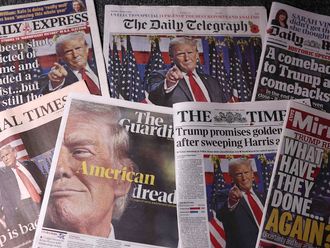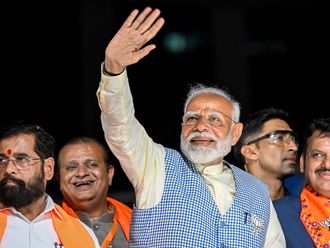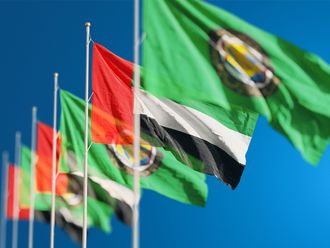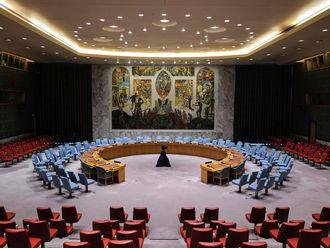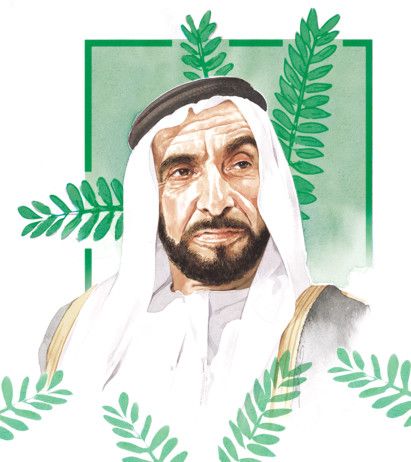
HIGHLIGHTS
- Tolerance was a key pillar of Shaikh Zayed’s thought, and it was at the heart of his philosophy for life and governance.
- A tolerant society is also a united and collaborative one where love, goodwill and altruism prevail.
- This philosophy is seen in the many practices and policies that laid the foundations of the UAE’s tolerance approach.
- Shaikh Zayed established a pioneering model for tolerance that guaranteed the cohesion and strength of UAE society.
- He advocated spreading and sharing human values as the true essence of religion, and rejected the fanaticism, hatred and isolation.
Tolerance is unquestionably an indispensable human value that builds cohesive, stable and advanced societies. Fanaticism, hatred and violence are detrimental to any society where they take hold, and are the antithesis of tolerance. We must continually strive to promote tolerance as a culture and lifestyle in our nations, and among people of different backgrounds. It should become part of the very fabric of society, as a fundamental element in relationships between people, and at the heart of our dealings with other cultures. Tolerance is particularly important during times of increased hatred and bigotry, when extremist activities and clashes of civilisations intensify. Thankfully, there are always people destined to serve humanity who ensure its survival by furthering justice, tolerance and positive values. The late Shaikh Zayed Bin Sultan Al Nahyan was one of those people who strived to spread tolerance through his words and actions. As a result, he became an icon of peace, tolerance and dialogue at national, regional and global levels.
Tolerance was a key pillar of Shaikh Zayed’s thought, and it was at the heart of his philosophy for life and governance. His belief in the importance of this supreme human value was rooted in a number of significant factors. Firstly, for Shaikh Zayed, cultivating tolerance was central to the development of UAE citizens. He prioritised human progression and saw it as a vital tool for holistic development, as well as one of its goals. Shaikh Zayed did not only focus on developing the capacity and skills of his people, but more importantly, sought to instil human values and morals, particularly tolerance. In line with this approach, Shaikh Zayed repeatedly urged UAE citizens, and people he met from all walks of life, to embrace tolerance in their relations with one another, so that human development would be comprehensive — combining a strong set of values with knowledge and expertise.
It is our duty, and the duty of the whole of society, to forgive the sinner and help him return to the right path. Allah, the Almighty, is forgiving, so can we not forgive?
Shaikh Zayed also realised the importance of social cohesion as the foundation of stability and progress in any society. A tolerant society is also a united and collaborative one where love, goodwill and altruism prevail. It stands together, able to respond to challenges as one. When intolerance, fanaticism and hatred spreads between members and sections of society, it becomes divided, fragmented and very likely to collapse. Shaikh Zayed said: “Without tolerance, no rapport can be maintained between friends or brothers. Tolerance is a virtue.” Shaikh Zayed believed that fostering tolerance is the responsibility of all in society, and that society should forgive those who make mistakes, helping them find their way back to the right path. At the Emirates Centre for Strategic Studies and Research (ECSSR), we have presented some of Shaikh Zayed’s historic quotes at the start of lectures and academic events, organised by the centre as part of the Year of Tolerance. One of the most profound messages is Shaikh Zayed’s statement that the sinner is a brother to the righteous. He said: “It is our duty, and the duty of the whole of society, to forgive the sinner and help him return to the right path. Allah, the Almighty, is forgiving, so can we not forgive?” These wholehearted, sincere words reflect a profound human philosophy that advocates tolerance among all members of society, as a foundation of fraternity and the essential element of unity and cohesion.
The third aspect that makes Shaikh Zayed’s thought in this regard distinct is his view of tolerance as a factor in unification, steering members of society towards cohesion, making them more inclined to become united. This is in stark contrast to nations and societies that suffer from widespread hatred and bigotry, which in turn, leads to division. Establishing a culture of tolerance was an integral part of Shaikh Zayed’s unionist philosophy, and a major factor that contributed to realising the dream of the UAE Federation in 1971. Shaikh Zayed remained open and flexible during unification negotiations, striving, for example, to settle differences between Abu Dhabi and Dubai. Shaikh Zayed said: “We are keen to spread love and fraternity between each other. If you take something from your right hand to put it in your left hand, can you say that you have lost anything? We are all brothers within a single body.” This example, as well as many others, shows the UAE Union model was built on tolerance, fraternity and dialogue — foundations that have ensured its success and distinction as one of the most effective unification models in the region and the world.
Call for dialogue for coexistence
Shaikh Zayed’s tolerance philosophy also emphasised its importance as a supreme value called for in Islam. Shaikh Zayed saw religion as a call for dialogue, coexistence and tolerance. He advocated spreading and sharing these human values as the true essence of religion, and rejected the fanaticism, hatred and isolation promoted by some groups in the name of religion. In this context, he said: “It is the scholars’ duty to explain to people the essence and great message of Islam, which calls for tolerance, wisdom and fairness, so that people reject terrorism and killing in the name of religion.” This approach reflects Shaikh Zayed’s profound philosophy and astute understanding of the realities of his time, as well as those we now face. The problem for our Arab and Muslim nation, as well as for the entire world, is those who misinterpret and manipulate religious texts to disseminate values of extremism, violence, terrorism and hatred. The essence of all religions should in fact be the spread of tolerance and love among all people.
Shaikh Zayed’s unique philosophy is seen in the many practices and policies that laid the foundations of the UAE’s tolerance approach. The UAE is now a pioneering global model, particularly in relation to religious freedom. During his rule, Shaikh Zayed would receive the representatives of various religions, stressing the importance of dialogue between all faiths and cultures. He strived to create an environment in the UAE where followers of different faiths performed their religious rites freely and without fear. In the 1970s, Shaikh Zayed had three churches built to serve Christian denominations in Abu Dhabi, and in 1999, he allocated a plot of land to the Egyptian Church for the Egyptian Coptic Orthodox Cathedral. Shaikh Zayed continually emphasised the importance of understanding and cooperation between people of different faiths, and this played an undeniable role in achieving peaceful coexistence for around 200 nationalities that call the UAE home.
The final element of Shaikh Zayed’s tolerance philosophy considered in this article concerns his awareness of tolerance and dialogue as the foundation of cooperation between nations. All over the world, where values of tolerance, cooperation and dialogue prevail, peace, security and stability follow. Shaikh Zayed spread values of tolerance among all people through the UAE’s foreign policy, which advocates openness to the world. It is well known that the UAE avoids taking sides in conflict, favouring the language of dialogue, even with opponents. The UAE also extends a helping hand to people in need all over the world, regardless of race, culture, religion, gender or skin colour. This twin approach of tolerance and reaching out to others has seen the UAE become a symbol of good across the globe.
Shaikh Zayed established a pioneering model for tolerance that guaranteed the cohesion and strength of UAE society, despite the challenges it faced. He saw the UAE become a beacon of tolerance, love and coexistence, setting an example emulated by many. This is particularly important at a time when nations are fighting to maintain their stability and security amid a rising tide of hatred and fanaticism throughout the region, and the world.
Year of Tolerance
The UAE’s tolerance approach, instilled by Shaikh Zayed, has been a guiding light for our wise leadership. His work has been carried on by His Highness Shaikh Khalifa Bin Zayed Al Nahyan, President of the UAE; His Highness Shaikh Mohammad Bin Rashid Al Maktoum, Vice-President and Prime Minister of the UAE and Ruler of Dubai, and His Highness Shaikh Mohammad Bin Zayed Al Nahyan, Crown Prince of Abu Dhabi and Deputy Supreme Commander of the UAE Armed Forces. They have continued to consolidate values of tolerance, coexistence and moderation through initiatives and pioneering actions that have elevated the UAE globally as an international model of tolerance. The Human Fraternity Document, signed earlier this year in the UAE by His Holiness Pope Francis, the Head of the Catholic Church, and His Eminence Dr. Ahmad Al Tayeb, Grand Imam of Al Azhar, is an outstanding example of the UAE’s promotion of tolerance worldwide. At the domestic level, the UAE leadership has sought to convert Shaikh Zayed’s tolerance philosophy and approach into an institutional and legal framework. This is demonstrated by the Anti-Discriminatory Law in 2015, establishing the Ministry of Tolerance, devising a national tolerance programme and declaring 2019 the Year of Tolerance, in addition to a range of other initiatives I discussed in my article published in this respectable newspaper in March 2019.
The culture of tolerance that Sheikh Zayed established is a proud legacy that inspires generations in the UAE and beyond. Its far-reaching impact honours this exceptional leader, who was a symbol of tolerance and peace in the region, and all over the world.
Dr Jamal Sanad Al Suwaidi is a UAE Author and Director-General of the Emirates Centre for Strategic Studies and Research.



